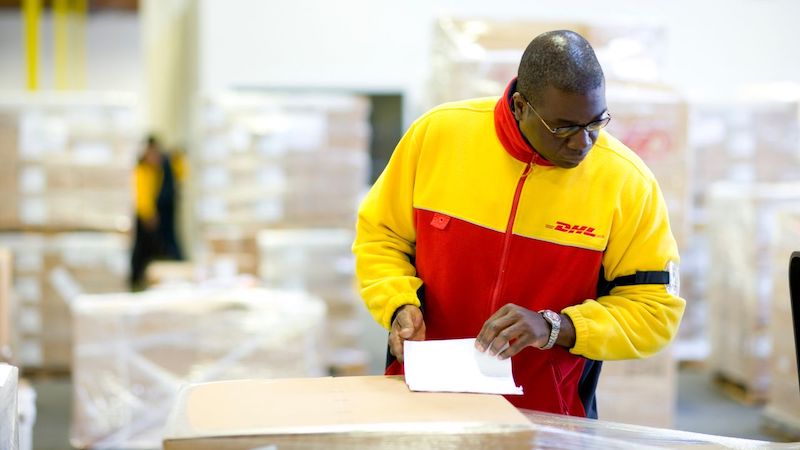Grow your business with the Discover newsletter
Logistics advice & insights straight to your inbox
Subscribe now
If you are a business importer in the Philippines, you must know the various duties and customs taxes in the Philippines. All articles, when imported to the Philippines, are subjected to duty upon each importation. If you are importing from any ASEAN trading partner, you will not have to pay any tariff on 99% of the goods under the ASEAN Trade and Goods Agreement (ATIGA).
Additionally, there are important documents required for the import of goods. Missing out on the necessary documentation may otherwise cause a delay in the customs procedure in the Philippines. This article will discuss which documents you need to import into the Philippines, the products that you are prohibited or restricted from importing, and how to calculate the tax required.
In the Philippines, goods are typically classified into three import categories: freely importable, regulated, and prohibited. Some extra licenses and certificates may be required for importing regulated and restricted items. However, as a general rule of thumb, you would need the following documents to import products into the Philippines.
An endorsed Bill of Lading or Airway Bill.
A sales invoice that shows the commercial value of the goods.
A packing list with the detailed information regarding the products
Duly notarized Supplemental Declaration on Valuation (SDV)
Depending on the types of goods being imported, additional documents may be required, including the following:
Import license for the Philippines or permit
Certificate of origin only for those products for which you want to avail preferential tariffs under free trade agreements.
Other documents and certificates that prove exemption from taxes and customs fees in the Philippines
Authority to Release Imported Goods (ATRIG)
Tax Credit Certificate (TCC)
Tax Debit Memo (TDM)
If a ruling was used in goods declaration, a copy of the verdict is required.
Additionally, you may be wondering how to get an import license in the Philippines. In the case of freely importable goods, you will not need to register for a license. Depending on the types of goods, you will need to obtain an Import Clearance Certificate (ICC) from the Bureau of Internal Revenue. Once you have the necessary certificate, you can then register with the Bureau of Customs (BOC). As part of the registration process, you will also need to create an account with the Client Profile Registration System (CPRS). The ICC will remain effective for three years, after which it must be renewed at the end of its validity period.
The requirements for exporters, on the other hand, differ. If you are looking to export for your business, you will need to register with the CPRS via the Philippine Exporters Confederation.
Bear in mind that there are some commodities and products that come under-regulated or restricted goods under the Philippine law. As such, you must obtain a customs import permit or license from appropriate government agencies before importing these goods.
The following commodities come in this category:
Rice and Corn: Rice and corn for which discretionary licensing arrangements are in place. Although the National Food Authority (NFA) is the sole rice importer, private grain dealers with the appropriate import licenses can also import rice.
Wood materials: Importing wood by furniture, log and lumber dealers will require a license from several different authorities.
Essential Chemicals and Controlled Precursors
Dangerous Medicinal Drugs
Recyclable Materials with Hazardous Substances
Ozone-Depleting Substances
Wildlife
Live Animals and their products
Coal, Anthracite
Fishery and aquatic products
Plants, planting materials, and plant products
Cane, beet sugar, and artificial sweeteners
Chainsaws
Semi-synthetic antibiotics
Health products
Explosives, blasting agents, detonators, and chemicals used in the manufacture of explosives
Fertilizers and pesticides
Used cars, trucks, and other vehicles, including their parts
Aircraft, engines, and propellers
Ships not wooden-hulled
All products originate from the following socialist and centrally planned economy countries: Albania, Angola, Ethiopia, Laos, Libya, Mongolia, Mozambique, Myanmar, Nicaragua, and North Korea


The following products are prohibited from being imported into the Philippines:
Written or printed goods that pose a risk to national security, inciting treason, rebellion, insurrection, and sedition against the Philippines government, or containing a threat to harm or take a person's life in the country.
Drugs, medicines, or instruments that may be used for unlawful abortion or any written or printed material that advertises or describes information about illegal abortion.
Written or printed material representing an obscene or immoral character.
Goods manufactured from gold, silver, or other precious metals do not indicate the fineness of the materials used in a stamp or mark.
Adulterated or misbranded food products
Products that infringe intellectual property codes and laws
Dynamite, gunpowder, ammunition, firearms, and weapons
Roulette wheels and other instruments and accessories are used in gambling.
Marijuana, opium, poppies, coca leaves, heroin or other narcotics or synthetic drugs
Used clothing and rags
Toy guns
Laundry and other detergents containing complex surfactants
Polychlorinated biphenyls (PCBs)
Live piranha, shrimp, and prawns
Right-hand drive vehicles
Hazardous waste

DHL Express has assisted companies globally for over 50 years in imports and exports. Allow us to handle all your shipments, so you do not have to face any challenges throughout the customs clearance procedure in the Philippines. We also offer customs clearance services at a small cost if you need to deliver urgently and save time. Open an account today with DHL Express, and let us assist your business in overcoming the obstacles of international customs.